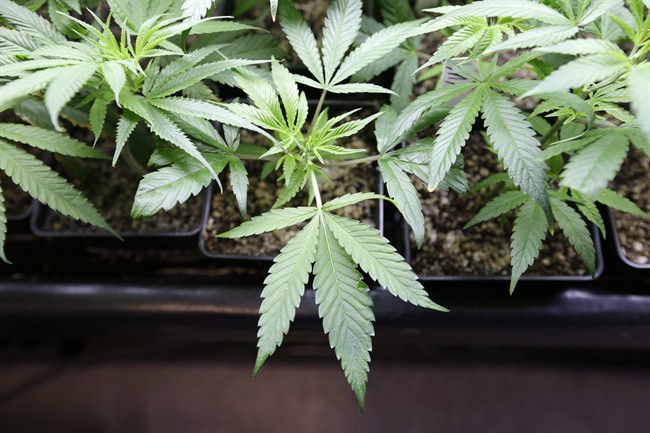VANCOUVER – Patients who are currently licensed to grow their own pot will be permitted to continue producing the drug despite regulations banning homegrown medical marijuana starting April 1, a Federal Court judge ruled Friday.

VIDEO GALLERY: Medical marijuana debate
Judge Michael Manson granted an application from a group of medical marijuana patients, who asked for a temporary injunction to preserve the status quo until a constitutional challenge of the new system can be heard.
The decision represents a significant blow, at least in the short term, to the Conservative government’s attempt to overhaul this country’s medical marijuana system, which it says is rife with problems ranging from unsafe grow-ops to infiltration by criminals.
WATCH: Global 16X9’s investigation into Canada’s medical marijuana system
Judge concludes some patients may be unable to afford marijuana under new rules
The new regulations restrict medical marijuana production to commercial growers, though the injunction does not affect the new licensing system.
Health Canada had warned any patient licensed to grow pot under the current rules must confirm they have destroyed their plants or they would be reported to the police.
The plaintiffs in the lawsuit argued the updated regulations violate their right to access important medicine, because marijuana is expected to initially be more expensive under the new system. They also say they won’t have as much control over which strains of the drug they use.
The judge concluded some patients will not be able to afford marijuana if prices increase as they are predicted to do under the new system.
“This group will be irreparably harmed by the effects of the (new regulations),” Manson said in a written decision.
“I find that the nature of the irreparable harm that the applicants will suffer under the (updated regulations)constitutes a ‘clear case,’ which outweighs the public interest in wholly maintaining the enacted regulations.”
- Canadian man dies during Texas Ironman event. His widow wants answers as to why
- Invasive strep: ‘Don’t wait’ to seek care, N.S. woman warns on long road to recovery
- ‘Super lice’ are becoming more resistant to chemical shampoos. What to use instead
- Canadians more likely to eat food past best-before date. What are the risks?
Under the terms of the injunction, patients who were licensed to possess or grow marijuana, whether for their own personal use or as a designated person for another patient, as of Sept. 30 of last year can continue to do so.
Those patients will be permitted to possess up to 150 grams of marijuana, the decision says.
Canada’s medical marijuana history
Canada first regulated medical marijuana in 2001, but only after the government was forced to do so by the courts. A year earlier, an Ontario court concluded the law at the time violated the rights of sick people who used pot to alleviate their symptoms.
The number of people authorized to possess — and often grow — marijuana has increased to 37,000 this year from fewer than 100 in 2001. The federal government says the current licences translate to about 3.5 million plants.
The Stephen Harper government announced a significant overhaul of the system last year and has since been accepting applications from commercial growers.
In this week’s court hearing, a government lawyer said there is no constitutional right to cheap medicine, and he argued there was no scientific evidence to show specific strains of marijuana are better suited to particular illnesses or patients.
The patients’ lawyer suggested the government had offered little concrete evidence that the medical marijuana system actually poses as many risks as it claims.
While the injunction application didn’t specifically target the new commercial licensing regime, the government argued that allowing some patients to continue growing their own pot would prevent the fledgling medical marijuana industry from fully developing.
The Federal Court ruling notes the potential for the injunction to affect the commercial market, but Manson writes the impact will be short-lived and won’t have a major impact on the government’s ability to implement its regulations.
A trial has not been scheduled, though Manson’s judgment says a trial is expected within nine to twelve months.



Comments